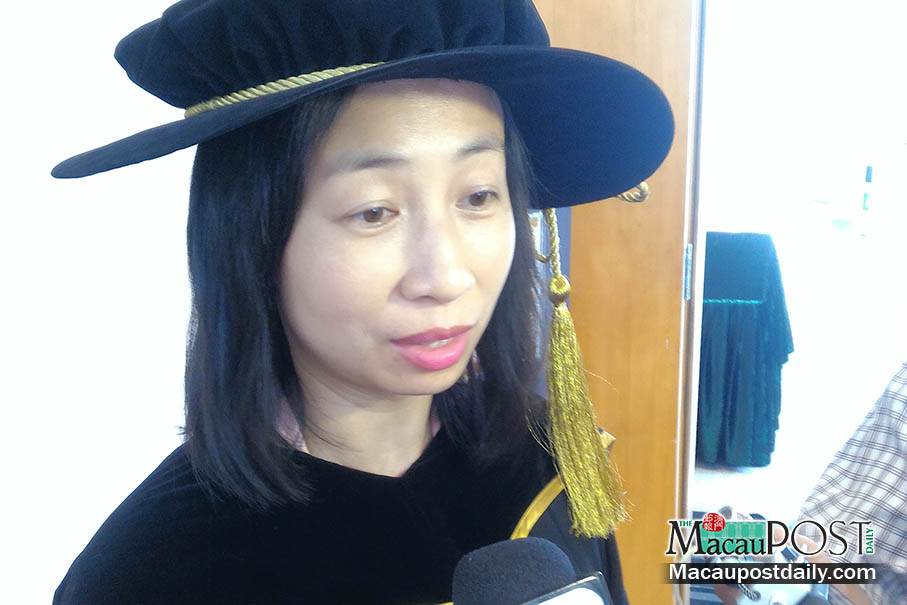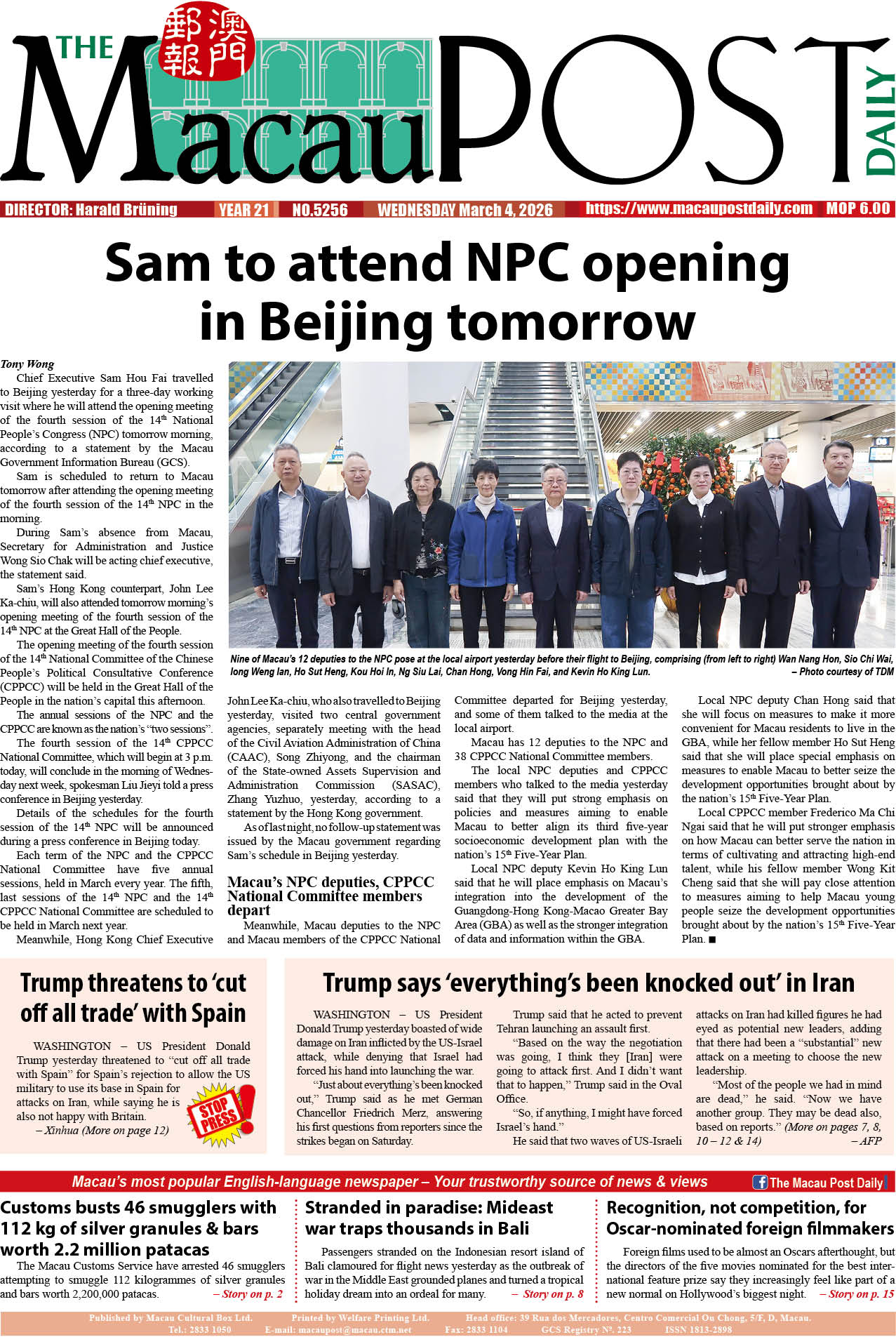8 million jabs from 1st batch to be reserved for HK, Macau people
Researchers from the Macau University of Science and Technology (MUST) and Hong Kong Polytechnic University (PolyU) have developed a vaccine that could prevent the novel coronavirus from attaching to human cells and stop a key part of the infection process, Johnson Lau Yiu-nam, adjunct professor of the Department of Applied Biology and Chemical Technology of PolyU yesterday, adding that the research team aimed to start human trials “in the near future”.
Lau made the remarks during an online press conference yesterday.
Lau and his team published an article in the science journal Nature titled, “A vaccine targeting the RBD of the S protein of SARS-CoV-2 induces protective immunity” last month about their recent research.
Zhang Kang, a professor from the Faculty of Medicine of MUST, noted that the novel coronavirus uses its spike protein receptor-binding domain (S-RBD) to attach to receptors in human lung cells. He explained that the recombinant vaccine they developed could block the protein receptor-binding domain binding to ACE2 expressed on the cell surface safely and effectively, thus preventing the infection and spreading of SARS-CoV-2.
“This is the most important step in the infection process, so we knew that if we could stop that from happening, we would be able to block the virus from invading the body,” Zhang pointed out.
Zhang added that according to their research, the vaccine had given complete protection and induced a strong immune response as early as seven days in mice, rabbits, and monkeys. He underlined that using the RBD protein in the vaccine could reduce unwanted side effects while producing a stronger antibody than in human patients who had recovered from COVID-19.
In other words, Lau analogised the virus as a key and the cell as a keyhole, adding that the vaccine could create antibodies like “bubble gum” which could fill up the keyhole and block the key from entering the keyhole.
“The biotechnology method used in creating the recombinant RBD vaccine is mature and feasible in aiding mass vaccine production,” said Lau. He added that once the vaccine hits the market after successful trials, the team would reserve eight million vaccines for residents of Hong Kong and Macau. He did not say when he expected the vaccine to be commercially available. Hong Kong has a population of about 7.5 million. Macau’s population stands at nearly 700,000 including 186,000 non-resident workers.
When asked by reporters about when the human trials could begin, Lau said it could take “weeks or months” to get them off the ground. He was quick to add that it was safer to say that the human trials could start “in the near future.”
Alvis Lo Iek Long, a clinical director of the public Conde de São Januário Hospital Centre said during yesterday’s press conference about Macau’s novel coronavirus (COVID-19) situation that multiple organisations around the world are engaged in inventing a vaccine, and he said it was “encouraging” that Macau is contributing to the process. However, Lo pointed out that the clinical trial has three phases, adding that it was too early to comment on the vaccine’s effectiveness and production process. He also said that the government would continue to pay close attention to all the vaccines’ development around the world to ensure that Macau residents would be able to access the vaccine.
This handout photo provided by Hong Kong-Macau vaccine research team shows Johnson Lau Yiu-nam (from left to right), Alexander Wai Ping-kong, Manson Fok and Zhang Kang (seen on the screen) during a virtual press conference about their joint venture project yesterday.








